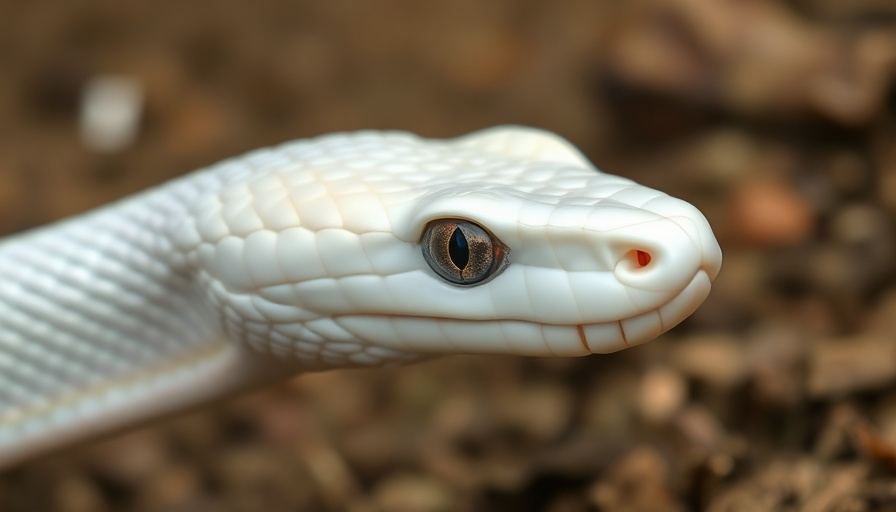
Understanding Snake Mouth Rot: A Dire Concern for Pet Owners
Snake mouth rot, medically referred to as infectious stomatitis, is a serious health issue that can afflict snakes of all species. It manifests as a bacterial infection that can lead to severe symptoms such as pain, swelling, and significant difficulty in eating. If neglected, this condition can escalate to fatal levels. As a snake owner, arm yourself with knowledge and proactive care to help your pet fully recover. Most snakes can fully bounce back from mouth rot with the correct treatment approach.
What Is Snake Mouth Rot?
Essentially, mouth rot is an infection of the mouth caused by opportunistic bacteria that infiltrate through minor cuts or abrasions. Also labeled as ulcerative stomatitis or necrotic stomatitis, it commonly affects the gums, teeth, tongue, and even jaw bones of the affected snake. Species such as pythons and boas, which thrive in warm and humid environments, may be particularly vulnerable, especially if kept under suboptimal conditions.
Recognizing the Symptoms
Being observant is crucial when it comes to identifying the early signs of snake mouth rot. Subtle indicators at the outset can quickly develop into far more severe issues. Initial symptoms may include:
- Loss of appetite
- Excessive salivation or drooling
- Swelling around the mouth
- Red spots or blisters in the mouth
- Unusual asymmetry in mouth and face
As the infection worsens, signs may become alarmingly apparent—with more severe complications such as tooth loss and systemic infections. This disease can quickly escalate to more critical conditions, including pneumonia, if left untreated.
Why Does It Occur?
Mouth rot is typically not a standalone disease but arises due to several interrelated factors that compromise a snake's health. Common culprits include:
- Poor hygiene: Unsanitary conditions, like dirty enclosures and unclean water bowls, can propagate harmful bacterial growth.
- Stress: Factors like improper temperature, insufficient hiding spots, or overcrowding can significantly weaken a snake's immune system.
- Injury: Physical damage to the mouth can create entry points for bacteria, especially during breeding or when shedding.
- Underlying health issues: Pre-existing health conditions, such as parasitic infections or malnutrition, can predispose snakes to infections like mouth rot.
The Importance of Veterinary Diagnosis
Should you suspect mouth rot, timely veterinary intervention is paramount. Reptile veterinarians will conduct thorough examinations, potentially sampling mouth discharge for cultural analysis to tailor the treatment to the specific bacterial strain. They may also recommend additional diagnostic tests such as blood work and X-rays to determine the infection's extent and rule out underlying health issues.
The Treatment Path
The journey to recovery typically involves a multi-faceted approach:
- Antibiotics: These are prescribed to eliminate the offending bacteria. Treatment may be either oral, injected, or topical, depending on severity.
- Debridement: In severe cases, veterinarians may need to remove dead tissue or, in extreme instances, operate on affected bones.
- Supportive care: This can include fluid therapy, nutritional support, and pain management to ensure your snake's comfort during recovery.
The path to healing can span weeks to months, with diligent monitoring required. The prognosis improves significantly with early detection and aggressive treatment.
Preventing Mouth Rot: A Proactive Approach
The best remedy is prevention. Snake owners can adopt a series of practices to mitigate risks:
- Maintain a clean environment: Regularly disinfect enclosures and water sources to limit bacterial growth.
- Optimal habitat conditions: Ensure appropriate humidity and temperature settings, along with adequate hiding places to minimize stress.
- Regular checkups: Frequent veterinary visits can help identify potential issues before they escalate into severe illnesses.
FAQs About Snake Mouth Rot
It’s crucial to enlighten yourself further regarding mouth rot. Here are some frequently asked questions:
- Is mouth rot painful for snakes? Yes, it can be significantly painful, and seeking care swiftly is essential.
- How common is this condition in ball pythons? Ball pythons are particularly susceptible under poor care conditions.
- What does snake mouth rot look like? Symptoms include redness, swelling, discharge, and ulcers in the oral cavity.
By understanding the symptoms, causes, and management of snake mouth rot, pet owners and enthusiasts can better support their reptiles’ health and well-being. To secure your snake's health, maintain vigilance and proactive care in your reptile's environment and well-being.
As pet owners and enthusiasts, knowledge is your greatest ally. If you suspect a health concern in your snake, reach out for veterinary assistance as soon as possible. By taking these measures, you not only prolong your snake’s life but also ensure a happier, healthier pet.
 Add Row
Add Row  Add
Add 


Write A Comment